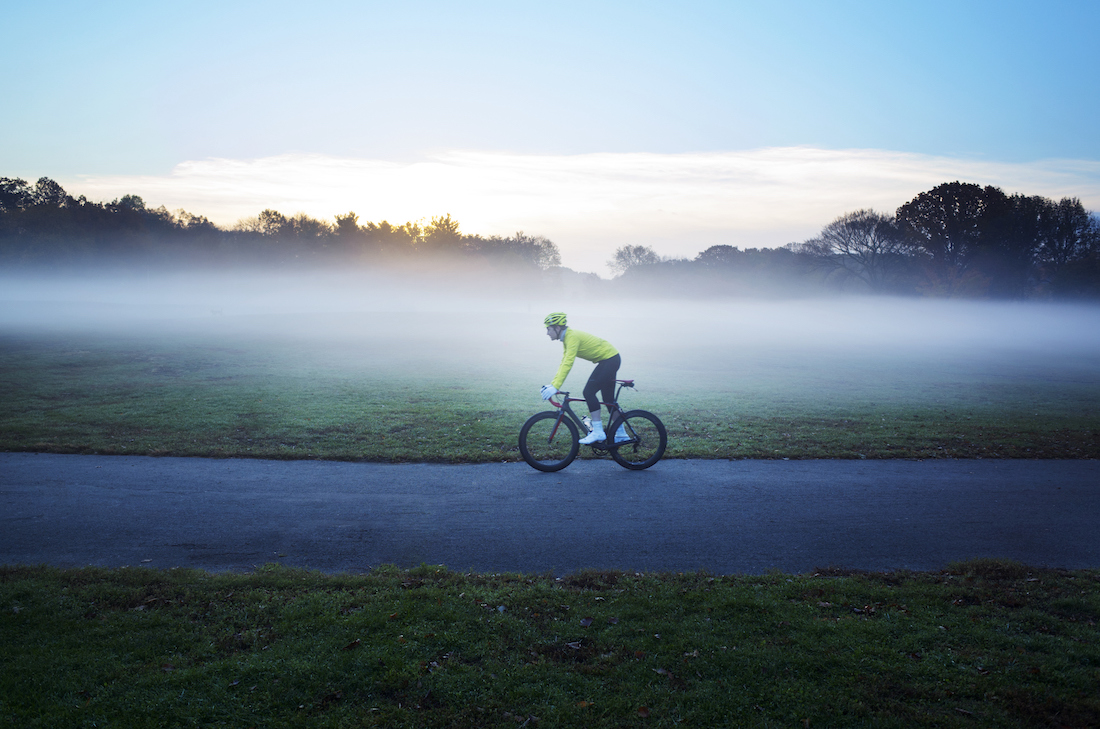Riding your bike could help you stay safe from the winter Covid-19 surge
Study shows that regular exercise may improve the effectiveness of coronavirus vaccines


As much as we'd like to believe that we're no longer in the throes of a pandemic, Covid-19 not at all a thing of the past. As new Covid variants circle the globe, another Covid surge is expected as we enter our third Covid winter.
Cases are already on the rise in countries like India, U.k., France and Germany, and with the holiday season fast approaching, more countries are preparing for a surge.
To bolster your protection and avoid getting sick, health officials recommend the continued wearing of masks in crowded public spaces, staying home when feeling sick and to get a vaccine booster when available.
Additionally, a new study suggests that the best protection of them all may just be a vaccine + regular bike riding.
A study published in the British Medical Journal concluded that people who are vaccinated and exercise regularly are 25 percent less likely to be hospitalized with Covid-19 than sedentary people who received the same vaccine.
The study was meant to test the hypothesis that regular physical activity acts as an enhancer to the already immune-boosting effect of COVID-19 vaccines, thereby further reducing severe illness due to a Covid infection and consequent hospital admissions.
The study involved a test population of more than 250,000 South African subjects, and proved two things:
The latest race content, interviews, features, reviews and expert buying guides, direct to your inbox!
1.) The Coronavirus vaccine was effective in preventing serious illness, and
2.) The vaccine was most effective in people who exercise regularly.
The correlation between an active lifestyle and the impacts of a Covid infection was already well-documented. And most concluded that active people are not only less likely to be infected in the first place, if they do get infected with Covid, they're significantly less likely to be hospitalized or even killed.
But studies had not yet looked at whether exercise has any impact on the coronavirus vaccine and boosters. This study was the first to demonstrate an association between increased levels of regular physical activity and the effectiveness of the Covid vaccine or booster against hospitalization.
To study this correlation of exercise and the vaccine, researchers gathered pre-authorized data from South Africa's largest health insurer, Discovery Health.
Discovery Health has an incentive program that rewards its subscribers for being active. As such, the records not only included people's vaccination statuses and and whether or not they had at any point got Covid, they also detailed their exercise habits as tracked by wearables and gym visits.
The cohort was divided into low, moderate and high physical activity groups based on physical activity minutes, and included the person's vaccine status as well.
A low activity level was set at less than 60 min of at least moderate intensity physical activity per week. Sixty to 149 minutes of at least moderate intensity physical activity per week was considered moderate, and anything more than 150 minutes was considered a high activity level. To be considered a moderate intensity, heart rate levels had to be upwards of 70 percent of the individual's maximum.
The study first proved that the vaccine was indeed effective in preventing Covid-related hospitalizations. It then went on to suggest that regular physical activity may increase the effectiveness of Covid vaccines.
Of the study population that did get infected with Covid-19, the vaccinated people who exercised moderately for at least 150 minutes per week were almost three times less likely to be hospitalized than those who were also vaccinated but live more sedentary lives.
In fact, their active lifestyle enhanced the vaccine's effectiveness by 25 percent.
Even the group of vaccinated people who exercised as little as one hour a week, were still better off than the vaccinated but sedentary group. The little exercise still boosted the vaccine's effectiveness by 12 percent.
The study went onto to suggest that public health messaging ought to encourage physical activity as "a simple, cost-effective way of enhancing vaccine effectiveness to mitigate the risk of severe COVID-19 illness."
For us cyclists, it's music to our ears, or at the least, an encouragement to keep riding throughout the winter.

Cycling Weekly's North American Editor, Anne-Marije Rook is old school. She holds a degree in journalism and started out as a newspaper reporter — in print! She can even be seen bringing a pen and notepad to the press conference.
Originally from the Netherlands, she grew up a bike commuter and didn't find bike racing until her early twenties when living in Seattle, Washington. Strengthened by the many miles spent darting around Seattle's hilly streets on a steel single speed, Rook's progression in the sport was a quick one. As she competed at the elite level, her journalism career followed, and soon, she became a full-time cycling journalist. She's now been a journalist for two decades, including 12 years in cycling.